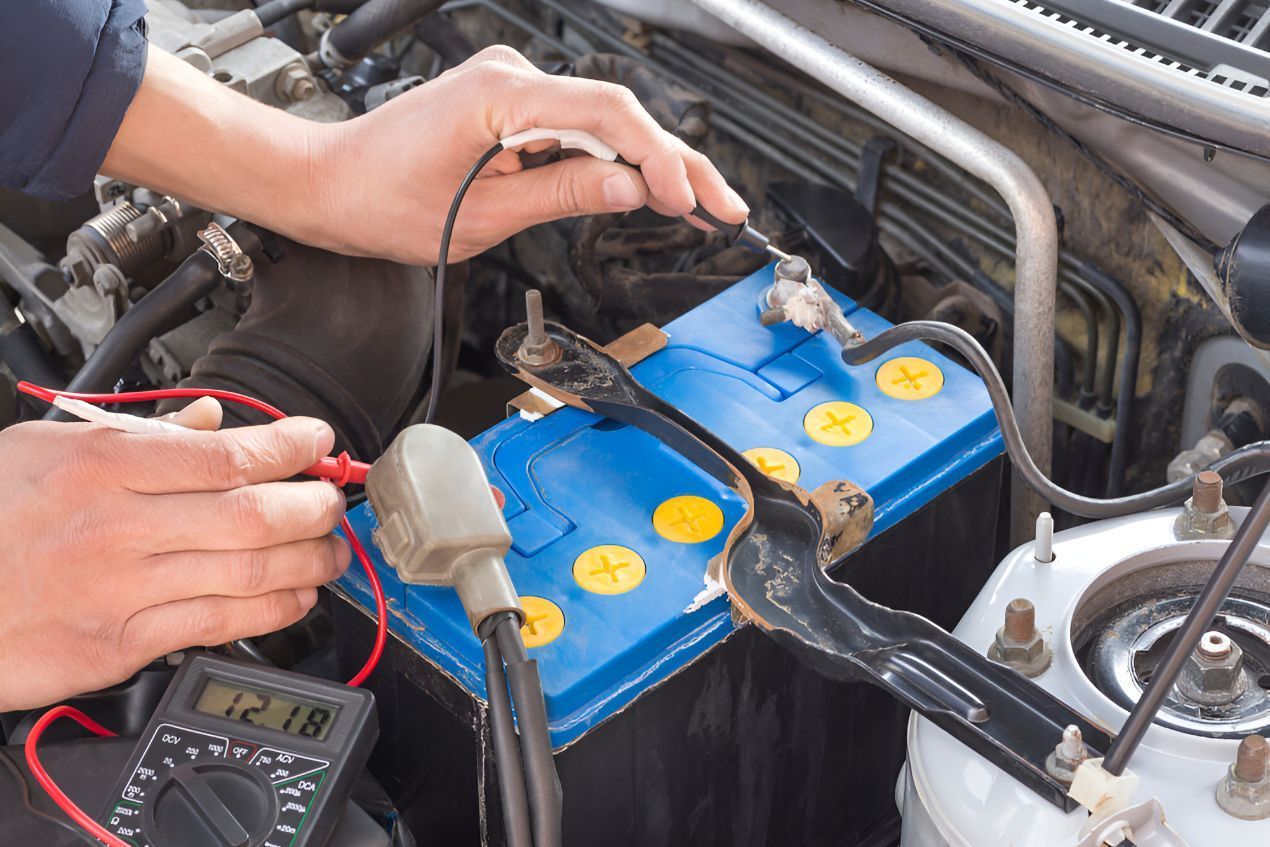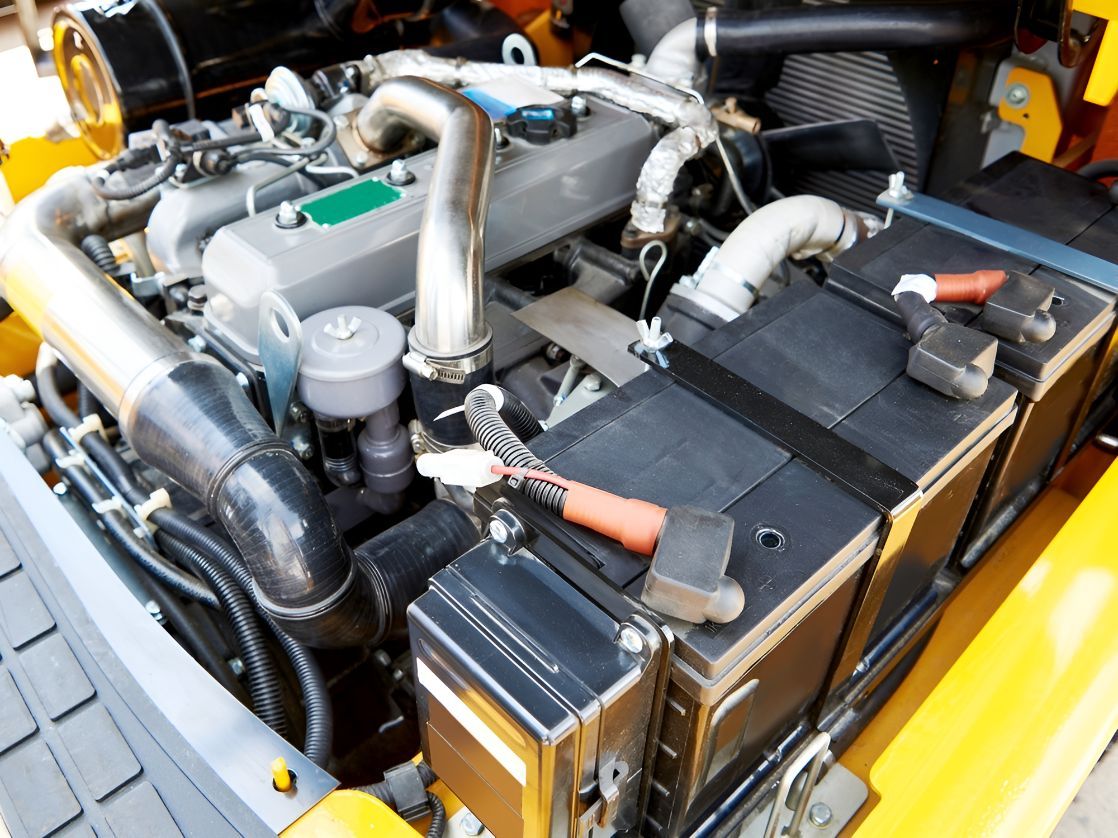Car Batteries Ballina
- Certified and experienced technicians
- Transparent pricing and fair rates
- Reliable customer service and timely repairs
Request a Call Back
Thank you for contacting K & T Ballina Mechanical.
We will get back to you as soon as possible.
Oops, there was an error sending your message.
Please try again later.
Comprehensive Car Battery Replacement Services
When it's time to replace your car battery, trust us at K & T Ballina Mechanical for comprehensive service. Our mechanics ensure your vehicle gets the correct battery for optimal performance. Whether you drive a sedan, truck, or motorcycle, we have the expertise to provide a seamless replacement experience.
High-Quality Batteries for Your Vehicle
We stock a wide range of high-quality car batteries in Ballina from leading manufacturers. Each battery is selected for its reliability and longevity, ensuring your vehicle runs smoothly. We offer batteries suited for all makes and models, providing the perfect match for your vehicle's specific needs.
Our experts are here to help you choose the best battery for your vehicle's specifications and driving habits. With our top-tier selection, you can drive confidently, knowing your car is powered by the best.
Fast & Efficient Installation Process
Our installation process is quick and efficient, minimising your downtime. Once you select your battery, our skilled technicians will handle the installation with precision and care, ensuring everything is connected correctly, and your vehicle's electrical system functions flawlessly.
We understand your time is valuable, so we strive to provide battery replacement services that get you back on the road as swiftly as possible. To speak with knowledgeable professionals about your car battery, advice on car battery care and maintenance over the phone, call (02) 6686 4852.
Expert Car Battery Testing & Maintenance
Regular testing and maintenance are crucial to prevent sudden battery failures. At K & T Ballina Mechanical, we provide thorough battery health assessments and maintenance services that help extend the life of your battery and ensure your vehicle's reliability.
Comprehensive Battery Health Assessments
We conduct thorough battery health assessments using advanced diagnostic tools to evaluate your battery's condition. This includes checking the battery's charge level, assessing its ability to hold a charge, and inspecting for any physical damage or corrosion.
Our detailed assessments help catch issues before they lead to bigger problems, ensuring your battery remains in top condition.
Preventative Maintenance to Extend Battery Life
Extend the life of your car battery with our preventative maintenance services. We offer cleaning of battery terminals to prevent corrosion, tightening of connections to ensure reliable starting, and testing to monitor the battery's charge and overall health.
Proactively maintaining your car battery can enhance its performance and longevity, saving you time and money in the long run. Call
(02) 6686 4852 to book your vehicle in today.
Frequently Asked Questions
How long do car batteries last?
Typically a car battery might last three-to-five years, depending on the vehicle.
How can I look after my car battery?
Some of the most common causes of flat or damaged car batteries include vibrations caused by off-road driving; lack of use; and overcharging your car battery.
How can I tell if my car needs a new battery?
The first sign that your car battery is flat will usually be warning lights on your dashboard. At this point, it's best to get your car's battery seen by a professional to rule out other underlying problems and have it replaced.
What are the signs that my car battery needs replacing?
Common signs that your car battery may need replacing include a slow engine crank when starting, dim headlights, electrical issues such as malfunctioning power windows or infotainment systems, and the battery warning light appearing on your dashboard. You might also notice a bloated battery case or a rotten egg smell caused by leaking fluid. If your car struggles to start in colder weather or after sitting idle for a few days, these are also indicators that the battery may be losing its charge capacity and should be tested or replaced soon to avoid being stranded.
How long does a typical car battery last?
The average car battery lasts between three to five years, but this can vary depending on your driving habits, climate, and how well the battery is maintained. In warmer climates, batteries may wear out more quickly due to heat accelerating the breakdown of internal components. Frequent short trips, leaving headlights or electronics on when the engine is off, and a lack of regular use can also shorten battery lifespan. Periodic testing and maintenance can help identify declining performance before a complete failure occurs.
Can a car battery be recharged, or does it always need to be replaced?
In many cases, a flat car battery can be recharged using a battery charger or by jump-starting the vehicle and allowing the alternator to restore the charge. However, if the battery is old or has been fully discharged multiple times, it may not hold a charge effectively and could need replacement. Corroded terminals, damaged cells, or internal sulphation can also reduce a battery’s ability to recharge. It’s best to have the battery tested to determine whether recharging is viable or if replacement is the safer long-term solution.
How do I choose the right car battery for my vehicle?
To choose the right car battery, you’ll need to consider the battery size, terminal layout, cold cranking amps (CCA), and reserve capacity suitable for your vehicle’s make and model. Check your owner's manual for the manufacturer’s recommendations, or consult a battery specialist who can advise based on your driving needs and local climate. Modern vehicles often require batteries that support complex electrical systems, so selecting one with compatible technology, such as an AGM (Absorbent Glass Mat) battery for start-stop systems, can ensure reliable performance and longevity.
What is the difference between maintenance-free and conventional car batteries?
Maintenance-free car batteries are sealed and designed to require no fluid top-ups during their service life. They typically use calcium or AGM technology to reduce water loss and are ideal for drivers who prefer low-maintenance solutions. Conventional batteries, on the other hand, have removable caps that allow users to check and replenish the electrolyte levels as needed. While they are generally less expensive, they require more frequent attention and are more susceptible to fluid evaporation, especially in warmer climates.
Why does extreme weather affect car battery performance?
Extreme temperatures, especially heat, accelerate the chemical reactions inside a car battery, which can lead to faster degradation of internal components. In hot weather, evaporation of the battery’s electrolyte fluid is more likely, potentially causing damage to the plates and reducing the battery’s lifespan. Cold temperatures, meanwhile, can reduce the battery’s ability to deliver sufficient power to start the engine, particularly in older or partially discharged batteries. This is why batteries often fail during seasonal changes when they are under the most stress.
What should I do if my car won’t start and I suspect the battery?
If your car won’t start and you suspect the battery is the issue, the first step is to check whether the lights or electronics are working—if not, the battery is likely flat. You can attempt to jump-start the vehicle using jumper cables and another vehicle with a working battery or a portable jump starter. Once started, let the engine run for at least 15–30 minutes to recharge the battery. If the car doesn’t start again after being turned off, it’s time to have the battery tested and potentially replaced.
Can I install a new car battery myself?
Installing a new car battery can be done at home if you have the correct tools and follow proper safety precautions. It involves disconnecting the negative and positive terminals, removing the old battery, securing the new battery in place, and reconnecting the terminals. However, modern vehicles may require additional steps like maintaining power to the vehicle’s computer system during the switch to avoid resets. If you’re unsure or uncomfortable performing the replacement, it’s best to have a qualified technician do the installation to prevent damage or injury.
What does CCA mean, and why is it important?
CCA stands for Cold Cranking Amps and refers to the number of amps a battery can deliver at -18°C for 30 seconds while maintaining a voltage of at least 7.2 volts. It’s a critical measure of a battery’s ability to start an engine in cold weather. Even in warmer climates like Ballina, having a battery with an appropriate CCA rating is important for consistent performance, especially if your vehicle has a larger engine or requires more power to start due to accessories and advanced electronics.
Do car batteries require regular maintenance?
Some types of car batteries require regular maintenance, such as checking and topping up electrolyte levels, cleaning terminal connections, and inspecting for signs of wear or corrosion. Even maintenance-free batteries should be checked periodically for signs of swelling, leaks, or voltage drop. Keeping terminals clean and tight helps maintain good electrical contact and prevents starting issues. Routine battery checks, especially before road trips or seasonal changes, can help prevent unexpected failures and extend the life of your battery.
Can using electronics while the engine is off drain the battery?
Yes, using electronic components such as headlights, air conditioning, infotainment systems, or even leaving a phone charging while the engine is off can gradually drain the car battery. If the battery is already weakened or nearing the end of its life, even short-term use of accessories without the alternator running can be enough to cause a flat battery. To preserve battery life, it’s best to limit electronics usage when the engine isn’t running and to turn everything off before switching off the ignition.
What should I do with my old car battery?
Old car batteries should never be disposed of in household bins or dumped, as they contain hazardous chemicals and lead. Instead, they should be taken to a licensed recycling facility or an auto service centre that offers battery recycling. Many mechanics and battery retailers will accept used batteries for safe disposal, sometimes offering a small discount on your new battery as part of an exchange program. Proper disposal helps protect the environment and ensures valuable materials are recovered and reused responsibly.
Why do some batteries fail earlier than expected?
Several factors can cause a car battery to fail prematurely, including frequent short trips that don’t allow the alternator enough time to recharge the battery, exposure to high temperatures, vibration from poor mounting, electrical drain from faulty components, and poor maintenance. Overcharging or undercharging the battery can also shorten its lifespan. Using the wrong type of battery for your vehicle or environment may also lead to early failure. Regular battery inspections can help detect issues early and reduce the risk of unexpected breakdowns.
How often should I have my car battery tested?
It’s a good idea to have your car battery tested at least once a year, especially if it’s over two years old. Testing is quick and can be done during routine servicing or oil changes. If you notice signs of battery trouble, such as slow starting, dim lights, or dashboard warning lights, it’s worth having the battery tested sooner. Preventative testing helps identify batteries nearing the end of their lifespan and allows you to replace them before they fail, saving time and avoiding potential breakdowns.
Is it safe to drive with a weak or failing battery?
Driving with a weak or failing battery can be risky, especially if your vehicle relies heavily on electrical systems. While you may be able to start the car and drive short distances, there’s a higher chance the battery will fail completely, leaving you stranded. If the alternator or charging system is also affected, you may experience stalling, flickering lights, or issues with power steering and braking systems. Replacing a failing battery before it dies is the safest option to avoid being caught out unexpectedly.











